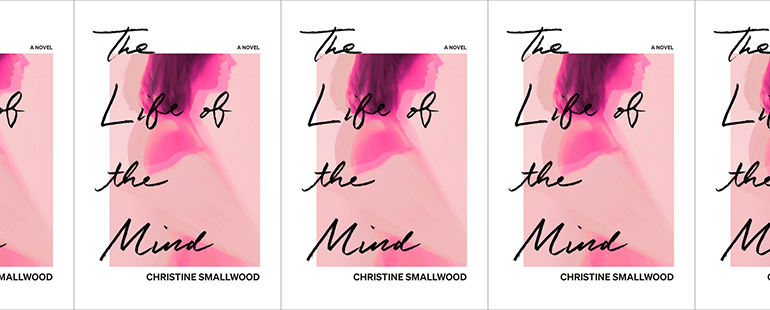The Promise of Karaoke

I used to like karaoke just fine: you could probably convince me to sing at a private room in Allston, Massachusetts, a crowded Fenway bar, and definitely at the (now closed) East Cambridge haunt Courtside. Karaoke was a fun way to spend time with people while drinking, not something I sought out or really thought about. But during the isolation of the pandemic, I became obsessed with karaoke. I bought a karaoke machine, I curated playlists of possible songs I would sing. It’s not that I missed actually subjecting others to my terrible renditions of Taylor Swift hits, but I was desperate for the feeling of being in harmony with other people, and karaoke is one place where community feeling is key. Karaoke is about process, not product—about singing, not the song. It’s a way of being with other people. I once heard a bouncer sing a rendition of Kid Rock’s “Picture” that had the entire bar in tears. This is what I missed during the pandemic: the promise of community, the shared experience of listening to people sing songs that they love.
Despite my new obsession, the best theorization of karaoke—and the best karaoke scene in contemporary literature—came to me by surprise: in Christine Smallwood’s novel The Life of the Mind, out earlier this year. The book centers on an adjunct English professor, Dorothy, reckoning with a recent miscarriage and the contingency of her career: what can she do with a love of literature that seems to be fading, with professional dreams that are turning out to be hollow? Her journey takes her to the places we might imagine—a therapist’s office, a tiny New York City apartment, a university library, even a professional conference in the bizarre environment of Las Vegas. All of these seem likely places to consider contingency and labor. But surprisingly, the climax of the novel occurs at a friend’s dinner party that becomes a karaoke night. In a serious, even bleak, novel about the academic world in crisis, why karaoke?
We only need to look to Dorothy, who has complicated feelings and theories about the activity. For Dorothy, karaoke is an old flame: “For a long time she had loved karaoke. Honestly, she had loved it too much. The love was frantic but also complex, a complexity born of her desire to expose herself and be known, and her concomitant dread of exposing herself and being known.” Karaoke, for Dorothy, was an echo chamber, “a dark and deep alcohol cocoon” where “her voice was so good, so strong.” It’s the promise of community, a place to be known and unknown at once—after all, every song you pick might expose something strange and new about you, or leave something crucial unsaid. Yet the magic of karaoke always ends too soon, leaving Dorothy “wound up like a clock, pulsing with all the songs sung and unsung, running on anxiety and regret, amped up and disappointed, wanting more and also wanting to have had much less.” So when the karaoke machine gets broken out at the party, Dorothy is filled with dread. Her partner asks if she wants to leave, but it’s too late.
The scene quickly becomes awkward: Dorothy picks the wrong song, and her best friend, Gaby, decides to sing the song Dorothy meant to choose—Bruce Springsteen’s “Brilliant Disguise,” the lead single from his 1987 album Tunnel of Love. Dorothy can’t find her way into the Bruce Springsteen song she’s mistakenly picked—“she tried talking along with the words onscreen, but didn’t recognize any of them, and even though Gaby sat at her feet, singing along to keep Dorothy on track, midway through the second verse Dorothy pushed the button to skip. A few people booed cheerfully.” When Gaby sings “Brilliant Disguise,” Dorothy leans in to tell her partner, Rog, that she meant to pick this song. It’s a tense moment: as a reader, I want Dorothy to triumphantly return to the stage, to force the attention-stealing Gaby into a duet, but instead, she just stands quietly and listens.
Maybe I want Dorothy to belt out “Brilliant Disguise” for herself because it’s the perfect song for this moment. Springsteen croons about a love that is full of deception, partners who aren’t sure that they really know the other. He sings, “When out go the lights, I’m just a lonely pilgrim, I walk this world in wealth. I want to know if it’s you I don’t trust, cause I damn sure don’t trust myself.” Springsteen’s words sound like they could be about Dorothy: a lonely pilgrim, searching for meaning and certainty in a crumbling world. Yet Dorothy can’t even sing her own song. If, as she thinks, “karaoke involved destroying something significant and putting oneself into the place of the thing you had killed,” then Dorothy refuses to destroy in order to create. She refuses action. Instead, Dorothy reflects that though she “had been embarrassed by her mistake by now she saw that there was no reason to be embarrassed. It was good that Gaby had done the song, Dorothy decided. It didn’t have to be her who did what could be done so well by someone else.”
Karaoke asks how close you can get to something you love without making it yours, promises that there is space for both you and the original singer. Does it have to be you who sings that song? Does it have to be you who teaches others to love what you love? These questions become questions about Dorothy’s imperiled academic career. Does it have to be her who teaches the young minds of America to appreciate literature of the climate apocalypse? Dorothy is falling out of love with the promises of academic jobs, and falling out of love with literature, in the same way. She thinks of herself “like a janitor in the temple who continued to sweep because she had nowhere else to be but who had lost her belief in the essential sanctity of the enterprise.”
As a PhD candidate in English myself, looking towards a bleak job market, I see in karaoke the graduate seminar, in which all voices in the room can meld into something so beautiful, so smart and full of promise, until the clock runs out and you all return to your apartments with notes that make no sense anymore. Like Dorothy’s early love for karaoke, my love of graduate school, my love of books and ideas, was “frantic but also complex,” complicated and unsustainable in the long term. You go to graduate school because, at some level, you love your objects of analysis. You love the work, which in modern parlance means it shouldn’t feel like work. If you do what you love, you never work a day in your life. But what do you do when that love becomes truly unsustainable, when the work asks too much of you? What do you do when there are no jobs in the work? Like Dorothy, I often feel like a person frozen in horror at a karaoke party, like the janitor at the temple, desperate to escape but unable to avoid participation. Is it possible to watch while your friends and colleagues get the few tenure track jobs and visiting positions, possible to think it might not have to be you who does “what could be done so well by someone else”?
Karaoke offers Dorothy the promise of community, the promise of being in the presence of something she loves, and the tenure track offers her the same thing: a promise that can never be fulfilled. Karaoke asks us whether you can appreciate something without trying to make it your own, whether it’s sustainable to watch other people do something you love. But Dorothy rejects these promises, and gets ready to walk away from something she loves without leaving her mark: “That, too, was part of the love—the bitterness that it did not last.”


